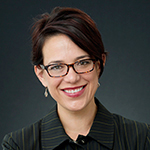By Amy Butler
 Most days I’m very grateful for my conservative evangelical childhood. For one thing, I can beat almost anybody at sword drill, which has never actually come in handy since I reached adulthood, but I’m not discounting the possibility that it might someday.
Most days I’m very grateful for my conservative evangelical childhood. For one thing, I can beat almost anybody at sword drill, which has never actually come in handy since I reached adulthood, but I’m not discounting the possibility that it might someday.
A deep knowledge of and appreciation for the Bible, Bible stories on flannel board, a meaningful experience with the person and message of Jesus, and some really great casserole recipes are also gifts of my evangelical childhood.
There are, however, a few things I could have done without. These include, but are not limited to, learning about sex from Jim Dobson and Focus on the Family; hearing and observing dangerous gender stereotypes in the church; never engaging in critical thought about Holy Scripture or the practice of faith.
Lately I’ve been thinking about one of these harmful lessons I learned early on. It’s this one: God has a special plan for your life. If you obey the plan that God has prepared for your life, you will be happy and at peace.
Along with most of the stuff I learned about sex from Focus on the Family, this is flatly not true. I don’t know how to say it any more clearly than that.
I was thinking about this last week as we began the season of Lent with the story of Jesus being tempted in the wilderness. Every year on the first Sunday of Lent we hear some version of that story; it has come to be very familiar to many of us.
And I’ve always thought of Jesus’ experience of temptation in the desert as an object lesson for those of us who just can’t seem to walk past the chocolate cake on the counter without stopping or who require the newest iPhone the day it comes out.
But I’m starting to think that this story of Jesus struggling in a desolate place is less about temptation and more about vocation — those persistent questions like, what am I meant to do with this life I’ve been given?
I really think the desert was not, in fact, a place where Jesus was tempted to do any number of interesting things other than what he’d been sent to do. Instead, the desert was more an exercise in hearing and discerning among the many voices in his life calling him to any number of interesting and potentially wonderful and terrible expressions of vocation — and then gathering the courage to set out on a brave journey to put action to what was probably, at best, a hunch.
Doesn’t that sound a lot like the messy struggle of being human? It sure does to me.
When I think about my vocation, this constant question of what I should be doing with my life, I tend to automatically revert back to the lessons of my childhood and feel the terror of missing the boat, choosing the wrong door, disappointing God and everyone who ever hoped I could do something with my life.
But this Lent I think I am going to try to reframe the way I think about vocation, using Jesus’ adventure in the desert as a guide. There’s no need to panic about finding the right course for life. Instead, finding who we are and what we’re meant to do with our lives is a messy, gritty, beautiful, painful, scary walk through the desert.
And ultimately it’s the courage to go into the desert, ask the hard questions, and live with the uncertainty that might do the real work of shaping our lives into all the possibility with which they are infused.
